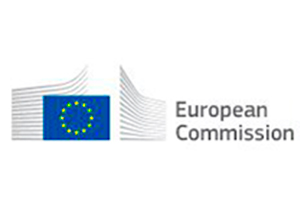
21 de March, 2022
21 de April, 2022
11:59 PM
Better financing models for health systems
Investigación
Escuela de Administración|Facultad de Economía
Aplica para diferentes países
Comisión Europea
$30.000,000
Health and social care services and systems have improved governance mechanisms and are more effective, efficient, accessible, resilient, trusted and sustainable, both fiscally and environmentally. Health promotion and disease prevention will be at their heart, by shifting from hospital-centred to community-based, people-centred and integrated health care structures and successfully embedding technological innovations that meet public health needs, while patient safety and quality of services is increased.
Health policy and systems adopt a holistic approach (individuals, communities, organisations, society) for the evaluation of health outcomes and value of public health interventions, the organisation of health care, and decision-making.
To that end, proposals under this topic should aim for delivering results that are directed, tailored towards and contributing to some of the following expected outcomes:
Decision and policymakers in the field of health care avail of new approaches to financial planning and financing mechanisms that provide flexibility to stretched health budgets, including alternative procurement and contractual methods;
Decision and policymakers in the field of health care apply cost-effective spending strategies based on the optimisation of the use of resources, while maintaining or improving health outcomes in an equitable way;
Decision and policymakers in the field of health care access tools that enable them to better remunerate, contract and incentivise health care professionals and providers;
Decision and policymakers in the field of health care take evidence-based andsocially equitable health care financial decisions.
Low- and middle-income countries
Objetivo/Descripción
Health and social care services and systems have improved governance mechanisms and are more effective, efficient, accessible, resilient, trusted and sustainable, both fiscally and environmentally. Health promotion and disease prevention will be at their heart, by shifting from hospital-centred to community-based, people-centred and integrated health care structures and successfully embedding technological innovations that meet public health needs, while patient safety and quality of services is increased.
Health policy and systems adopt a holistic approach (individuals, communities, organisations, society) for the evaluation of health outcomes and value of public health interventions, the organisation of health care, and decision-making.
To that end, proposals under this topic should aim for delivering results that are directed, tailored towards and contributing to some of the following expected outcomes:
Decision and policymakers in the field of health care avail of new approaches to financial planning and financing mechanisms that provide flexibility to stretched health budgets, including alternative procurement and contractual methods;
Decision and policymakers in the field of health care apply cost-effective spending strategies based on the optimisation of the use of resources, while maintaining or improving health outcomes in an equitable way;
Decision and policymakers in the field of health care access tools that enable them to better remunerate, contract and incentivise health care professionals and providers;
Decision and policymakers in the field of health care take evidence-based andsocially equitable health care financial decisions.
Elegibilidad (Requisitos para elegibilidad)
Low- and middle-income countries
